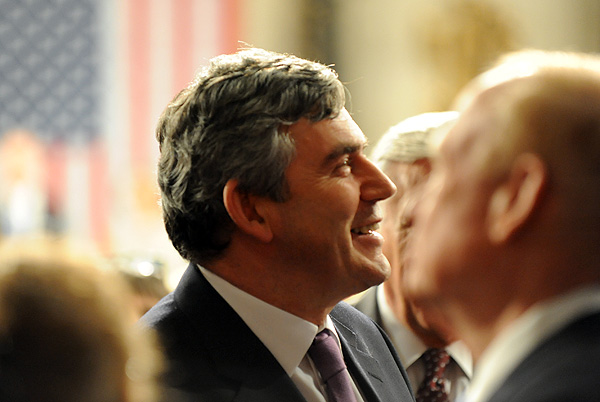Former UK Prime Minister Gordon Brown warned that half of the world’s children will have access to little or no education within the next 15 years if no urgent action is taken by the global community.
His claims are based on new information from a recent international study.
Addressing the United Nations (UN) headquarters in New York last Monday, Mr Brown warned of the “ticking time-bomb of discontent unless kids across the globe get proper schooling.’’
According to the study, 800 million of the world’s 1.6 billion children enter the adult world without the skills granted from a full secondary education by the end of 2030. 200 million children will not receive any form of education at all under present projections.
Brown, an alumnus of the University of Edinburgh, now works as a UN Special Envoy for Global Education and currently leads the International Commission on Financing Global Education Opportunity, a research group dedicated to providing the right to education for the next generation of children worldwide.
The Education Commission found that less than 10 per cent of young people across UN-classified low and middle-income countries such as Afghanistan, Niger, and Somalia, will be on track to gain basic secondary education by 2030.
To ensure that the UN’s target for every child to receive a full primary and secondary education is achieved by the 2030 deadline, Brown forecasted that an additional £23 billion of emergency funding is required.
Of that £23 billion, the report recommended an immediate £305 million be spent on arranging education for the current 30 million displaced child refugees around the world.
As of last month, four million of the children currently lacking an education are those reportedly fleeing the crisis in Syria.
“This is the civil rights struggle of our generation”, declared Brown in his speech to the UN, continuing: “At the moment we are betraying half our future.’’
In particular, the report highlighted the key areas where the UN’s work could most readily improve their work.
Brown revealed to The Guardian that wealthier western countries provide on average $100,000 (£75,000) towards a child over their lifetime in education, whereas lower income countries typically provide about $1,000 per child for this period that covers approximately 15 years.
Nigeria and Pakistan, having the largest figures for children out of school, spend only around two per cent of their annual GDP towards education, below the minimal expectation of at least five per cent of annual GDP for developing countries.
In his speech, Brown also warned that the lack of standard education for children could have disastrous consequences on children’s safety around the world, with children not in school becoming more vulnerable to coercive situations.
Brown was still critical of the world’s richer governments for failing to fulfill their share of responsibility to end this impending disaster, stating in his address: “Aid has got to be more effective and it has got to be directed towards this priority of education.”
Only 10 per cent of aid expenditure currently provided by the world’s donor governments is specifically aimed towards educational aid, leading Brown to suggest changes in diverting more international aid funds towards global education projects.
Brown claimed that this change will come through a “transformation of the way we deal with education aid” alongside a major reform of the international institutions with a new investment mechanism to channel funds into schooling.
Image: Downing Street

